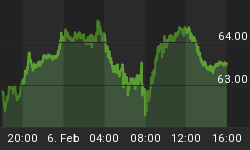To understand the reasons why our financial system, our economy and our present policies are unsustainable, we need to come to grips with two simple truths. First, the economy and government are an interconnected system. As such the party attempting to steer it does not have controlling power over it. The second fact is that "faster, better, cheaper" always wins, replacing the inefficient and unsustainable. This is the reality within which the system operates.
The present foundation of the system, and our economy, is Financialization. This is not by design but rather by Darwinian evolution. It has unfortunately, become the basic engine of consumer growth through its' leveraging of collateral into debt and phantom assets, such as derivatives and bubble valuations. The limiting fact to this system is that ever-rising debt and leverage is unsustainable,once household assets and incomes stop rising.
Uncontrolled financialization & unsound money, without historic exception,consistently leads to:
-
Malinvestment in the Private sector - In the private sector cheap money will naturally flow into high-risk, low-return investments. This leads to "McMansions in the Middle of Nowhere"
-
Crony Capitalism in the Public sector - In the public sector, crony capitalism secures low risk, high-return investments. This leads to "Bridges to Nowhere."
The system in its present form has become too complex, fragile and insufficiently robust, that it is realistically unsustainable and un-governable. The unsustainable will collapse and be replaced by an arrangement that is sustainable. Creative destruction and "faster, better, cheaper" is the only sustainable system; the alternative is to cling to failed models until the system collapses.
"Any intelligent fool can make things bigger and more complex... It takes a touch of genius and a lot of courage to move in the opposite direction." (Albert Einstein)
Additionally, our economy and state are unsustainable for converging and disruptive systemic reasons, that go beyond the financial:
-
Demographics--our aging populace and the impossible entitlements promises made
-
Decline of Paid Work--automation and the Web are destroying more jobs than they create
-
Diminishing Returns of Centralization--the more power the State grabs, the more broken the system becomes
-
EROEI (energy returned on energy invested): energy may be abundant but expensive
-
Healthcare in Crisis--our health declines as we spend 2X more per capita than our competitors
-
The End of Consumerist Growth--if debt and income aren't growing, neither can consumption
-
Globalization--the genii cannot be put back in the bottle
What We Can Do about It
"There is nothing more difficult to take in hand, more perilous to conduct, or more uncertain in its success, than to take the lead in the introduction of a new order of things. For the reformer has enemies in all those who profit by the old order, and only lukewarm defenders in all those who would profit by the new order, this lukewarmness arising partly from fear of their adversaries... and partly from the incredulity of mankind, who do not truly believe in anything new until they have had actual experience of it." ~ Machiavelli, 1532
The better choice is to embrace technological and social innovations and "faster,better, cheaper.", since it eventually wins, regardless of our preferences.
This means GLOBALLY accepting and INNOVATIVELY moving RAPIDLY towards a DATA System:
D- Decentralized
A- Adaptive
T- Transparent
A- Accountable
We don't get to choose, it is the natural order!
Hear Charles Hugh Smith explains this in his own words.
23 Minutes, 15 Slides















